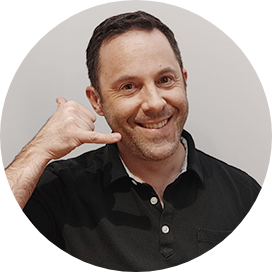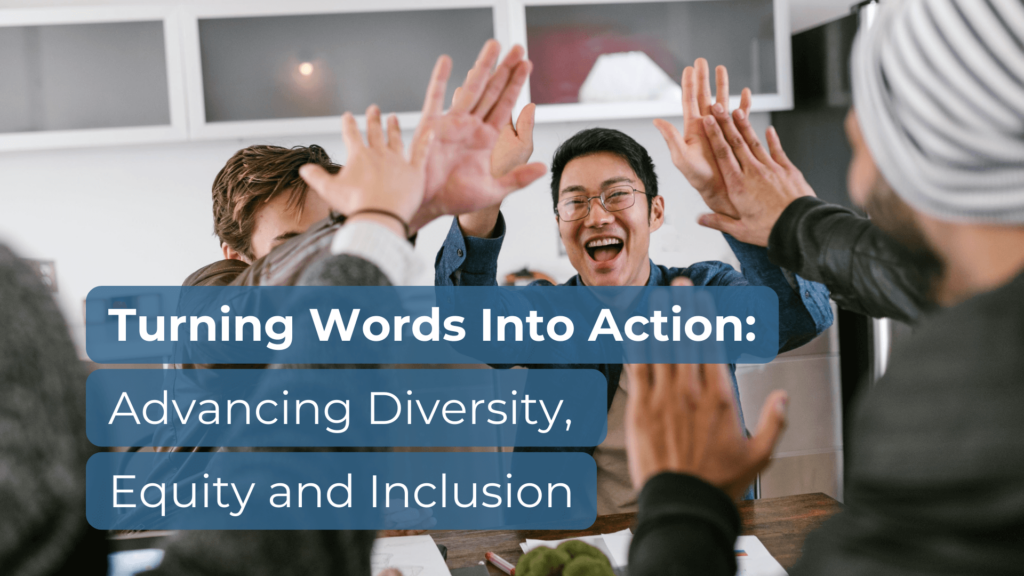In a world where diversity, equity, and inclusion (DEI) are increasingly important, organizations are grappling with the challenge of turning their words into impactful action. While many organizations express a desire to create a more equitable and inclusive workplace, they often struggle to translate that intention into meaningful outcomes. In this thought-provoking discussion with Dr. Kristen Liesch, Co-Founder and Co-CEO of Tidal Equality, we explore the reasons behind this struggle and uncover strategies for organizations to bridge the gap between intention and action.
The Challenge of Turning Words into Action
Kristen highlights two key reasons why organizations find it difficult to transform their intentions into meaningful impact.
Firstly, there is often a lack of will at the leadership level to drive equitable change. However, for organizations genuinely committed to DEI, the main challenge lies in the absence of the right tools. Kristen emphasizes the need for practical, evidence-based approaches that equip organizations and individuals to make equitable decisions and drive meaningful change.
The Power of a Strong Why
To initiate the journey from words to action, organizations must first establish a compelling why.
Kristen suggests reframing the conversation around DEI by recognizing that diverse stakeholders are the key to success. By understanding and meeting the needs of these stakeholders, organizations can drive innovation, resilience, and success. This shift in perspective positions DEI as a strategic imperative rather than a mere compliance exercise.
Programs, Mindset, or Both?
When it comes to creating sustainable change, organizations often wonder whether it is about implementing programs and activities or cultivating a DEI mindset. Kristen emphasizes the importance of both.
Organizations need practical tools and frameworks, such as the Equity Sequence, to guide decision-making and identify opportunities for more equitable and inclusive outcomes. At the same time, cultivating a DEI mindset among all employees ensures that everyone is engaged in the process and understands the relevance of DEI to their work.
Learn how to implement employee well-being into your total rewards with our free guide.
Case Studies: From Intent to Impact
Kristen shares two compelling case studies that demonstrate the power of practical tools and a DEI mindset in driving meaningful change.
The first example comes from Virgin Media, a long-standing client of Tidal Equality. By applying the Equity Sequence, Virgin Media identified a gap in their returner policy and revamped their returner welcome back boxes to be more inclusive of diverse experiences. This small gesture had a significant impact on the employees, making them feel seen, heard, and valued.
The second case study involves an organization in the tech industry that recognized a representation gap in its leadership ranks. By using the Equity Sequence to examine their promotions process, they made changes to open up opportunities to external and internal candidates, resulting in an 8% increase in the representation of underrepresented groups in just one year.
These examples illustrate how practical tools and a DEI mindset can drive measurable outcomes and create a more inclusive workplace.
The Myth of Eliminating Unconscious Bias
Kristen dispels the myth that unconscious bias can be eliminated. Unconscious bias is a natural cognitive process that helps us navigate a complex world. However, it is shaped by our socialization, context, and culture, making it impossible to completely eradicate.
Unconscious bias training, as it is commonly practiced, has not been proven to change biased behaviour or decision-making. Instead, organizations should focus on equipping individuals with tools like the Equity Sequence to spot bias and make more equitable decisions.
The Power of Asking Questions
The main takeaway from our interview with Kristen is that she emphasizes the importance of curiosity and asking the right questions.
Organizations and HR leaders can make equitable changes by examining their decision-making processes and identifying opportunities for improvement. Even small modifications, such as changing the timing of a meeting to accommodate working parents, can have a significant impact on inclusion and employee engagement. By embracing a DEI mindset and using practical tools, organizations can bridge the gap between intention and action, creating a more equitable and inclusive workplace for all.
The journey from words to action requires commitment, practical tools, and a DEI mindset. By reframing the conversation, equipping individuals with practical decision-making frameworks, and fostering a culture of curiosity, organizations can drive meaningful change and create a more inclusive future. The time for action is now, and it starts with asking the right questions and embracing the power of equity and inclusion. Check out our latest podcast for more on turning words into action.








